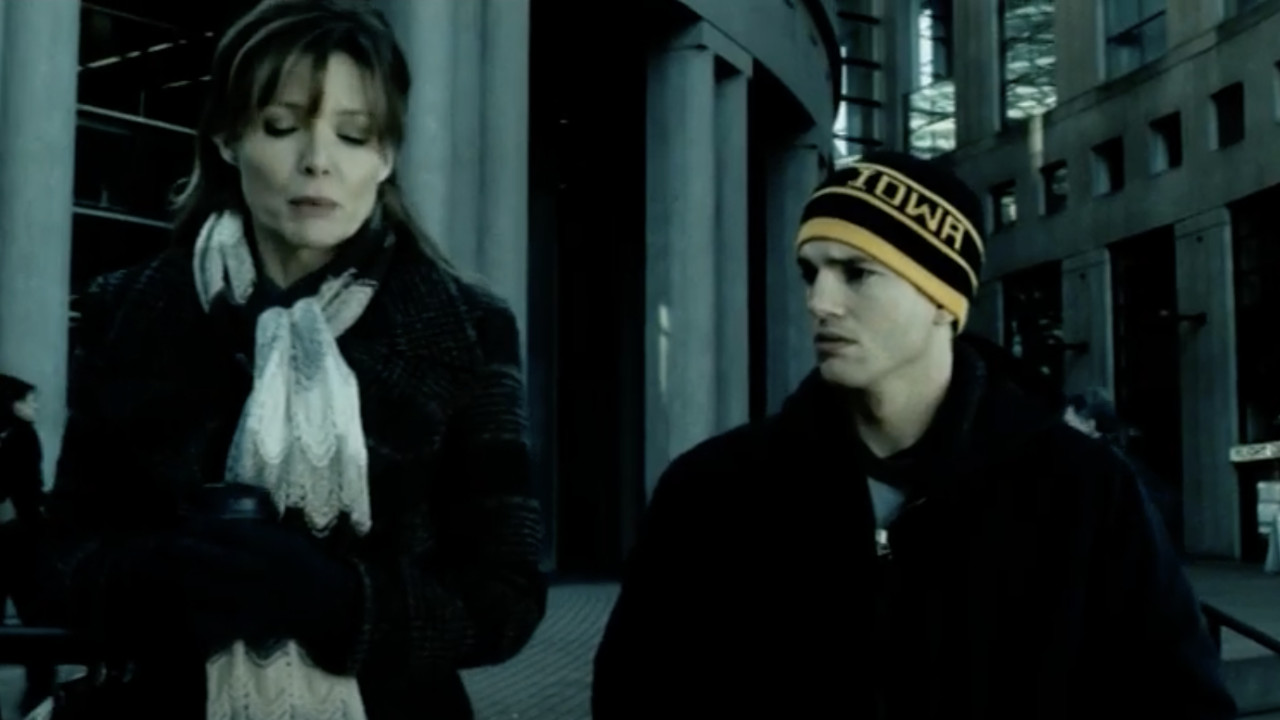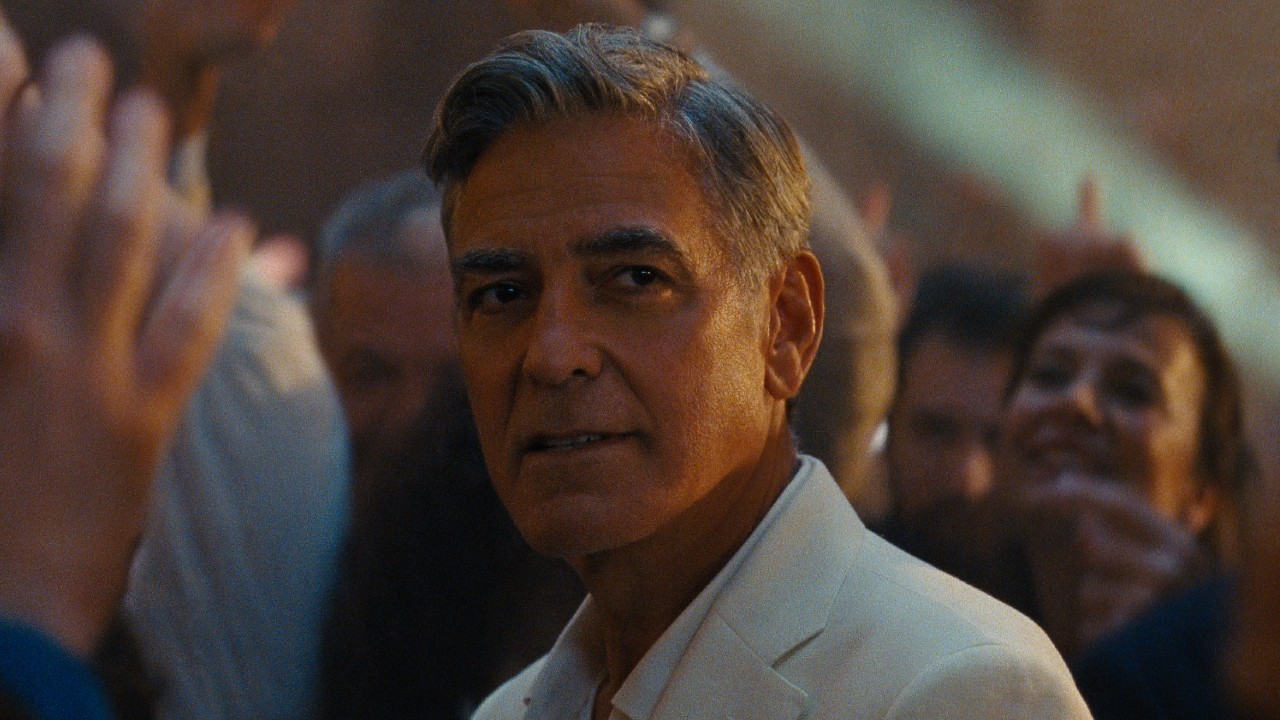Interview: Personal Effects Director David Hollander

When you make a movie with stars like Ashton Kutcher, Michelle Pfeiffer and Kathy Bates, based on a novella by an acclaimed writer like Rick Moody, you might figure you were on your way to arthouse success. But David Hollander learned the hard way when he made his directorial debut Personal Effects that getting your movie seen by audiences is never as easy as getting great actors and a promising story.
Personal Effects, a story about two people overcoming grief and falling in love in the process, will be premiering for one night only in a theater in New York and Los Angeles apiece. After that it will debut on DVD in May, where the investors figure they'll be able to make back their money. Hollander, who has previously worked on TV shows like The Guardian and The Cleaner, is clearly disappointed about the route his film has gone, but was more than happy to talk about his process in making the film, as well as what went wrong.
Read below for our exclusive interview, in which he talks about how he chose to make such a dark drama for his directorial debut, where you'll hear Topher Grace in the movie where you don't expect it, and how he'd tell directors to avoid seeing the same thing happen to their movie. If you live in the New York area and want to catch Personal Effects on the big screen, you can see it tomorrow, March 16, at 9:15 p.m. at the IFC Center.
What made you want to adapt Rick Moody's short story to begin with?
I've always been a fan of Rick's. I love Rick's writing in general, all of his novellas and novels. "Mansion on the Hill," the opening novella of Demonology, thematically it really struck me. The idea of trying to find some type of closure in grief, and the ambiguities that came along with that has always been a theme that interested to me. Rick's serio-comic approach to it appealed to me.
So how did you go about turning the novella into your own work?
When I started to write it , the novella was about a guy who was working in a factory, who had kind of been stuck in upstate New York after his sister died in a car accident the day before her wedding. I was having a hard time connecting [to the material]. I took a little break and was researching another script I was writing, and I realized there was a memory, [about] a woman who was a friend of mine growing up who was murdered in our community. Thsoe two stories just suddenly merged up. Suddenly it became me writing about people I knew in my hometown, with that kind of coloring of that type of story, and a more muscular world. I kind of split the main character in Rick's story into two characters, one being Linda who represented working out her grief while doing weddings, and one became Walter, someone who was stalling through life in a coming of age time, coming back to his hometown where he was waiting for some clarity.
Your Daily Blend of Entertainment News
How did you decide to use the device of a narrator who can't speak in real life? [The film is narrated by the character of Clay, Michelle Pfeiffer's deaf son]
The narration initially was internal, so it felt organic. The fact that he can't speak raised some challenges to me. Ultimately I just thought this was an internal voice. This was what he would sound like.
And you chose Topher Grace to do the voice?
His voice sort of split the difference between adulthood and boyhood. And voice that sort of lives in that area. It was a really piece of casting, to find the voice.
There's not a lot of violence in the film, but you return repeatedly to a shot of the murdered body of Walter's sister. How did you make that choice?
The murder scene is the only thing in the film that actually Walter has not literally seen. It's an imagination. I guess why I lingered on it is that to me it was a critical part of Walter's mindset, that he could only imagine these horrible things. It is a horrible thing. Part of it is to keep in mind and put into context what happened and how heavily that weighs on the mind of those who are left behind.
So at what point did your plans to distribute this theatrically fall apart?
Distribution, we assumed it. We didn't think there were going to be any issues at all. We didn't assume massive distribution. We didn't anticipate two things going on. We didn't anticipate that which was out of our control, which was the economic downturn, which was so severe. We didn't anticipate the mechanism of the financers who were making our film, and their habits and their tendencies to sell off bits and pieces of the film before the film was ready to be sold entirely.
How did that happen exactly?
If you sell DVD in foreign and television to offset financing for the film, it's very hard to find a distributor of any real repute to finance a film where the ancillary benefits are not their own. [For an arthouse film] what the benefits really are are DVD and television.
What was the timeline of how that happened, between finishing the film and realizing you wouldn't find a major distributor?
I didn't finish the film to be seen until September. By that time, the television rights had already been sold to Lifetime. Then in October, the financers took the film to AFM [the American Film Market], and just decided tot ry to sell it there. With that point soon after AFM, the Blockbuster deal was struck. Once Blockbuster and the TV rights and foreign had come together, the film was pretty much destined to have very little distirbution. Blockbuster does not distribute films, Lifetime does not distribute films. The cart was in front of the horse in the distribution model.
How common is it for something like this to happen to a film like yours?
It's very common. It's more and more common today. If a film financer is making a film for theatrical release and that's the goal and the model of their business, then they are willing to tolerate some of the risks. Insight [Film Studios, the production company] as a company is not that model. That's me, that's my naivete. if it look at the history of Insight, that's not what they do. We hoped it would be a different result. As I look around at the environment, a lot of films are having a hard time finding distribution.
How would you tell an up and coming filmmaker to go about their career, given what you experienced?
It depends on the type of film one wants to make. Making a personal independent film means you buy the dream lock, stock and barrel, and you let go of the result. If i had to do it all over again, I don't know. But expectations are tricky. I'm very glad I made the film. I like the film I made. I think it would feel worse if it went into 3,000 theaters and I thought it was a piece of shit. To me, if this film is important to a few people, that's lovely, and for me better than than making something that's wholly unimportant.
What do you think you've learned overall?
Everything I've learned from this process was a great and important lesson and a positive one. The thing that i learned is when you get a chance to direct a movie, direct a movie. It's an absolutely incredible experience, and I loved doing it. I'm not looking at this film any differently because of the way it's rolled out.
Staff Writer at CinemaBlend

